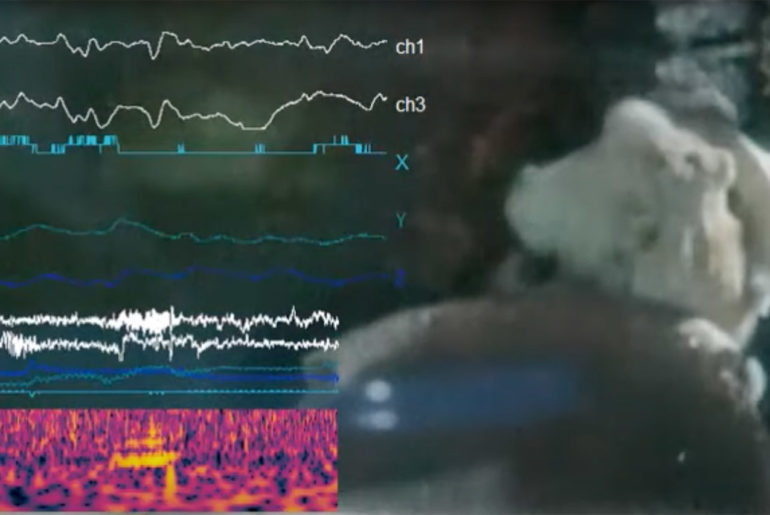
You’ve seen the giant Pacific octopus that loves hugs, now check out scientists recording the brain wave activity from a freely moving octopus for the first time ever. This is a technical challenge because unlike vertebrates, octopuses have soft bodies, so they do not have skulls to anchor the recording equipment onto to prevent it from accidentally coming loose.
So, the researchers had to use small and lightweight data loggers that were originally designed to track the brain activity of birds during flight. Modifications were necessary to make them waterproof, yet still small enough to easily fit inside the octopuses. Plus, the batteries needed to work in a low-air environment, but were still good for up to 12 hours of continuous recording. The specimen they chose is known as Octopus cyanea, or the day octopus, due to its larger size, and the data logger was implanted into a cavity in the muscle wall of the mantle, while the electrodes were put in its vertical lobe.
- 4K HDR Video, 1 Billion Colors - HDR video delivers vivid yet natural details, even in high-contrast scenarios, and 10-bit color depth captures over...
- Smooth, Level, Incredible - Whether you're skiing, skydiving, or biking around on bumpy terrain, HorizonSteady keeps things smooth and ultra-level for...
- Built to Endure - With a 160-min max battery life, and even 150 minutes of continuous recording in temperatures as low as -20° C (-4° F), the Action...
If we want to understand how the brain works, octopuses are the perfect animal to study as a comparison to mammals. They have a large brain, an amazingly unique body, and advanced cognitive abilities that have developed completely differently from those of vertebrates,” said Dr. Tamar Gutnick, first author and former postdoctoral researcher at the Okinawa Institute of Science and Technology (OIST).







